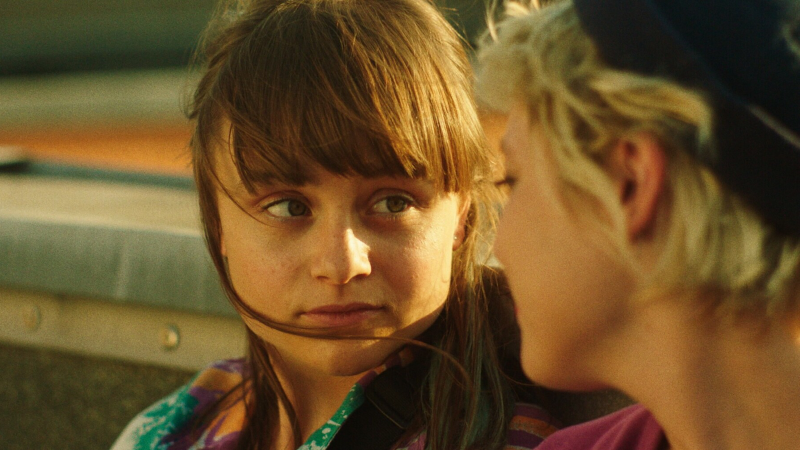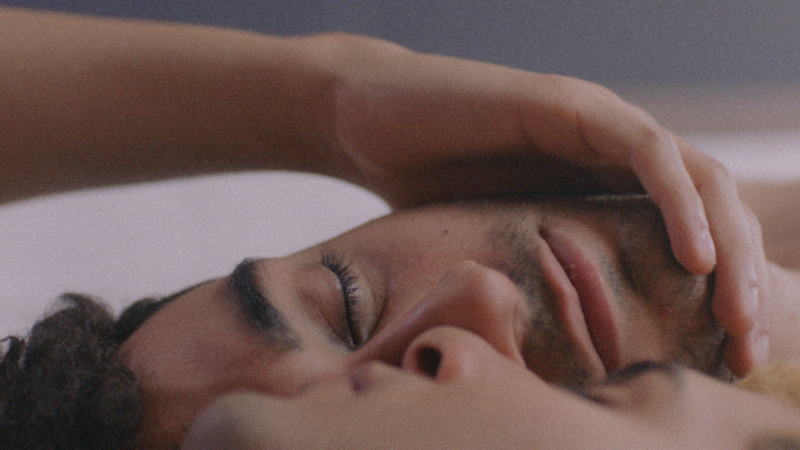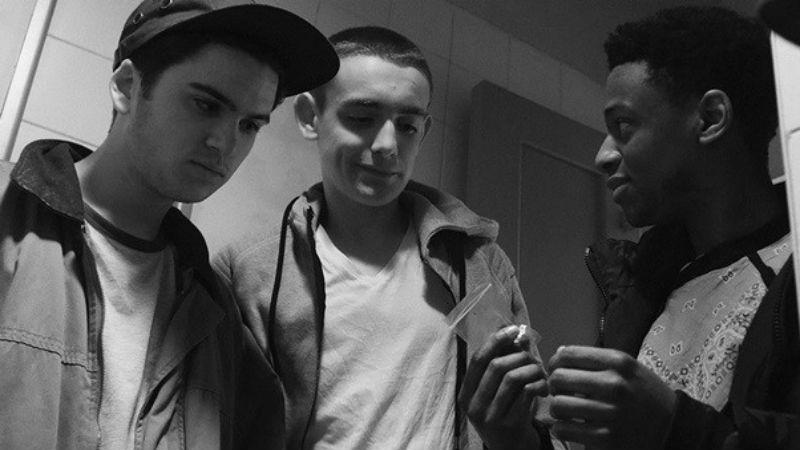QUICK SNAP: LIVE FROM LOCARNO
We never find a genuine answer to whether Robin (played by non-binary actor Vaughan Murrae) is a boy or a girl. It begins with them walking into their new classroom during a sexual education class: boys on one side, girls on the other. They sit purposefully in the middle, prompting derision from their peers.
The year is 1987. The country is Canada. The state is Alberta. Robin is an odd USA transplant adapting to a new life across the border. And while non-binary and trans people have existed since the beginning of humanity, schools in the era of homophobic John Hughes films and the weird homoeroticism of Top Gun (Tony Scott, 1986) don’t quite have the language to make Robin seamlessly fit in. When they join the saxophone ensemble, the teacher kindly says they can be whoever they want before handing them yet another saxophone: that’s the only instrument the school has.
Thus begins a coming-of-age story that is fresh in its representation but mostly derivative in every other aspect, a curious Locarno inclusion that would’ve felt much more at home in Berlinale’s generation section. Robin meets both boys and girls, develops intense crushes and gets into fights and gets bullied and fights back and sensitively draws the world around them. This is all shot in pastel colours with a handheld camera, sometimes inserting grainy VCR footage to immerse you in the era. The music is suitable synth-heavy too, although none of the needle cuts (Canadian bands?) are particularly memorable, probably due to budget issues.
And while some films might use their 80s setting of a way of easing you into a particular vibe, from Stranger Things (Duffer Brothers, 2016-) to Call Me By Your Name (Luca Guadagnino, 2018), Before I Change My Mind embraces its 80s tropes to the point of parody. Take West Edmonton Mall — the coolest 80s place on earth, a land where you can buy your multicoloured hairbands and leggings before going on a rollercoaster. Later, in perhaps a meta-commentary on the film’s music royalty budget, we are treated to a knock-off version of Jesus Christ Superstar — Mary Magdalene Video Star, an irreverent mash-up of 80s tropes that’s painfully cringe while actually surprisingly well-composed.
But this 80s vibe also allows for generic depictions of youth as well: the tree house in the forest, cycling around the suburbs, reading through porno mags, watching a VHS, and other tropes that have been played out hundreds of times. It’s certainly a pleasurable watch, thanks to solid performances from the kids in the film and the sensitivity with which their issues are handled, but nothing ever felt quite urgent or particularly intellectual. Non-binary and trans kids might welcome a film that is finally about them — especially at a time when schools report more children comfortably not slotting into a gender — but on an emotional and aesthetic level, there is nothing too special here.
Before I Change My Mind plays as part of the Concorso Cineasti del presente section of Locarno Film Festival, running from 3-13th August.











